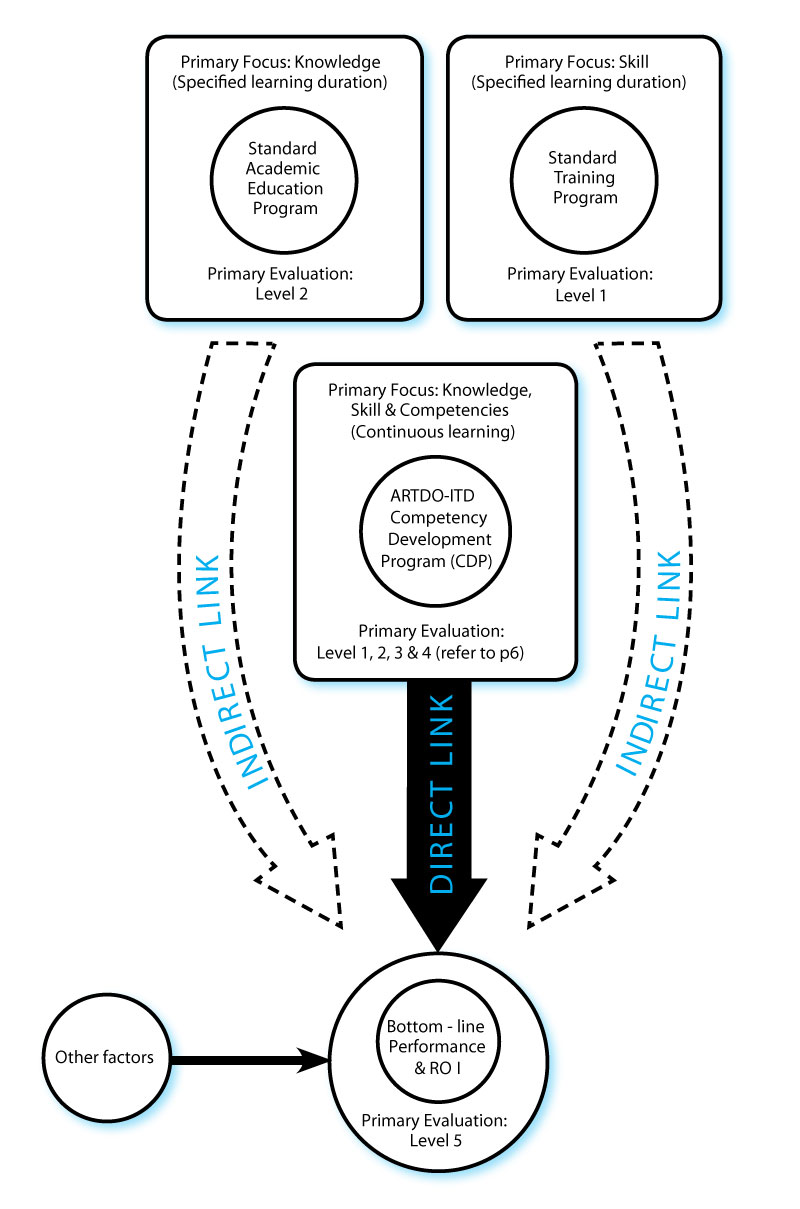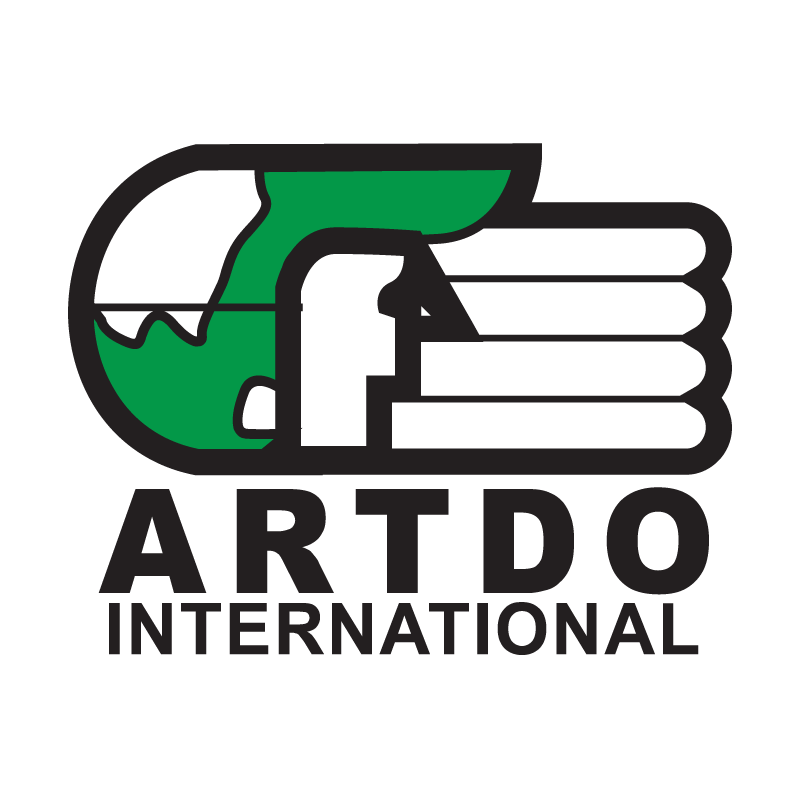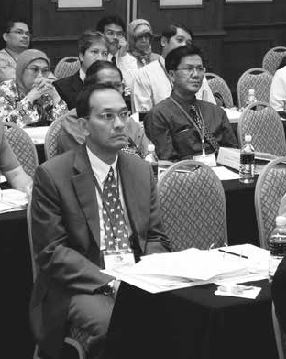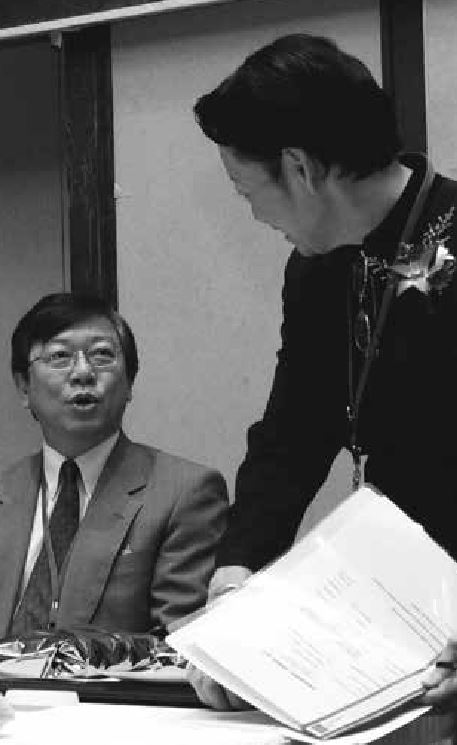

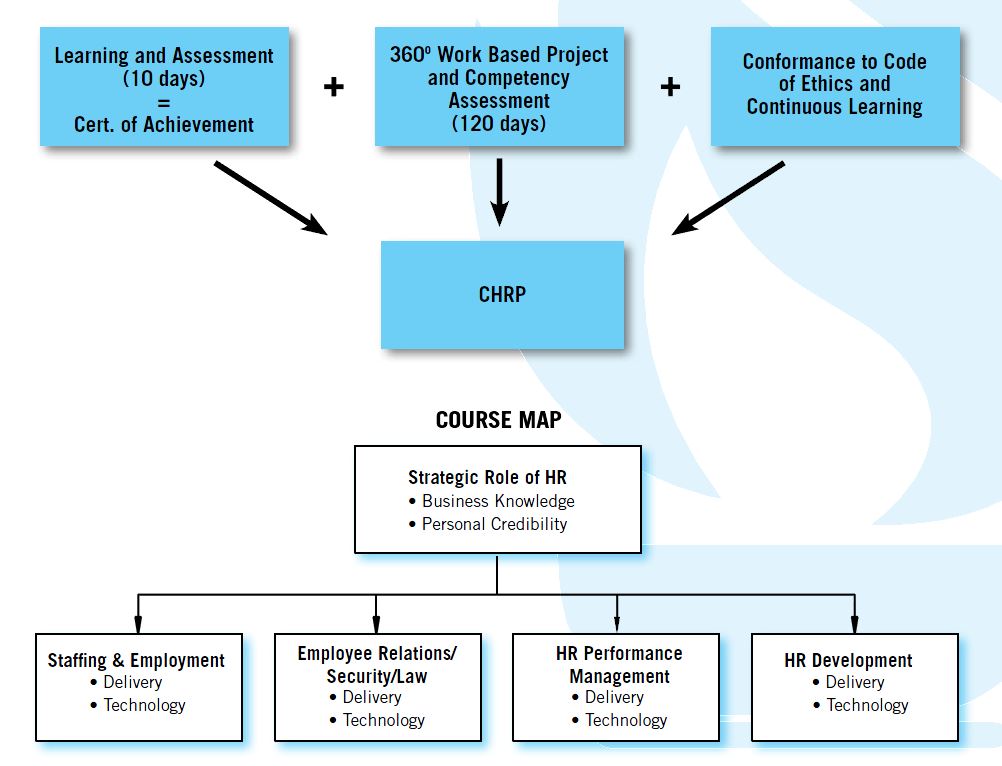
COURSE OUTPUTS
HR professionals will be able to achieve marked improvement in the following areas after completing and meeting the standards required of this certification program:
- Business partnerships established with key stakeholders
- The right people recruited, hired, transferred and promoted to the right jobs
- Employees motivated to achieve organizational goals
- A competent workforce achieving high performance
- Employee involvement, commitment and corporate citizenship
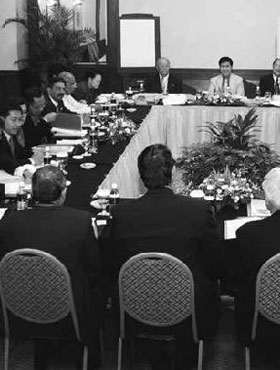
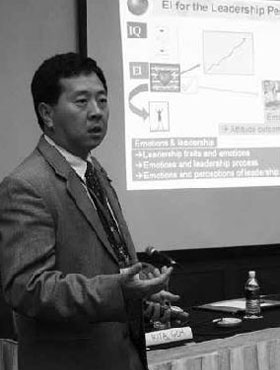
CURRICULUM PLAN
The Certification will include five courses, for a total of 11 days of professional development.
The five courses are:
- The Strategic Role of HR
- Staffing and Employment
- Management and Organization Development
- Performance Management
- Human Resource Development
TERMINAL PERFORMANCE OBJECTIVES
At the end of the program, participants will be able to perform the following:
- Identify the roles of Human Resources in the modern organization
- Establish a strategic role and business partnership for HR
- Conduct effective recruiting, staffing and selection activities
- Conduct effective performance management
- Design and implement compensation systems
- Design and implement benefits systems
- Design and implement performance appraisals
- Deep understanding organizational and business logics driving organization success
- Able to apply appropriate OD tools and frameworks to analyze and recommend change needs of the firm
- Be an internal OD and change management consultant using 7Cs consulting process
- Business partnering strongly anchored on the following HR professional competencies
- Implement effective workplace training and development program
- Manage organizational change and renewal
- Implement effective career development programs
Strategic Role of HR (Two Days)
- What is HR management?
- Roles and responsibilities of HR professionals
- Strategic versus administrative roles
- Key HR Outcomes and Results
- Organizational expectations of HR
- Management’s expectations
- Employees’ expectations
- Internal consulting – building partnerships with line management
- Strategic planning and HR workforce planning
- Organizational theory, structure and design
- Managing organizational change
- Delivering measurable HR results
- Key business and industry issues
- Aligning HR and business strategy
- Outsourcing HR services
- International/global HR
Staffing and Employment (Two Days)
- Workforce planning/forecasting
- Job analysis and design
- Methods of collecting job data
- Writing job descriptions
- Recruiting job candidates
- The role of job applications
- Selection process
- Employment testing
- Interviewing candidates
- Successful interviewing techniques
- Designing structured interviews
- Job placement
- Job promotion and transfer
- Talent management
- Workforce flexibility
• Temporary/contract labor
• Consultants - Employment technology
• Resume databases
• Selection testing
3. Employee Relations, HR Law and Security (Two Days)
- The nature of the employment relationship
- Managing fairly and equitably
- The legal environment and HR
- Equal employment opportunity
- Affirmative action
- Health and safety laws
- Wage and hour laws
- • Benefits laws and regulations • Wrongful terminations
- Privacy and confidentiality
- Ethical issues
- Employee discipline and counseling
- Managing termination
- Labor law
- Labor and union relations
- Collective bargaining process
- Union drives and elections
- Contract administration and negotiation
- Handling grievances
- Basics of employee safety and health
- Causes and prevention of accidents
- Workplace health issues
- Workplace security and dangers
- Employee relations/security technology
• HR information systems
• Safety databases
HR Performance Management (Two Days)
- Basics of performance management
- What is high performance?
- Establishing pay plans
- Establishing pay rates
- Pricing jobs & external equity
- Establishing pay structures & internal equity
- Pay for performance plans
- Benefits
• Paid time off
• Insurance benefits
• Retirement benefits
• Employee services & fringe benefits
• Cafeteria benefit plans - Performance appraisals
- Appraisal methods
- Appraisal forms and documentation
- Appraisal meetings and discussions
- Coaching for improved performance
- Performance management technology
• HR information systems
• Benefits intranets
• Compensation spreadsheets
Human Resource Development (Two Days)
- Training process
- New hire orientation
- On the job training
- Classroom training
- E-learning
- Management development
- Analyzing and evaluating training
- Managing organizational development
- Organizational change
- Quality improvement
- Team-based organizations
- Flexible work structures
- Career development
- Succession planning
- Managing promotions & transfers
- HR development technology
• Needs assessment databases
• Design and development software tools
• Learning management systems
• Learning content management systems
Competencies
HR professionals confront a changing business world that demands new competencies and skills. HR needs to add significant value to organizations and do so at a quick pace. No longer can HR rely solely on administrative or delivery roles. Instead, the focus is shifting to strategic roles and contributions. In recognition of this, HR professional organizations throughout the world have identified new competencies for HR. This includes the Society for Human Resource Management in the U.S., the Chartered Institute of Personnel Development in the U.K. and the Australian Human Resource Institute.
The Society for Human Resource Management (SHRM) has released one of the most comprehensive studies in its latest HR Competency Model, based on over 15 years of research and input from over 25,000 HR professionals. The model identifies five core areas of competence for HR professionals:
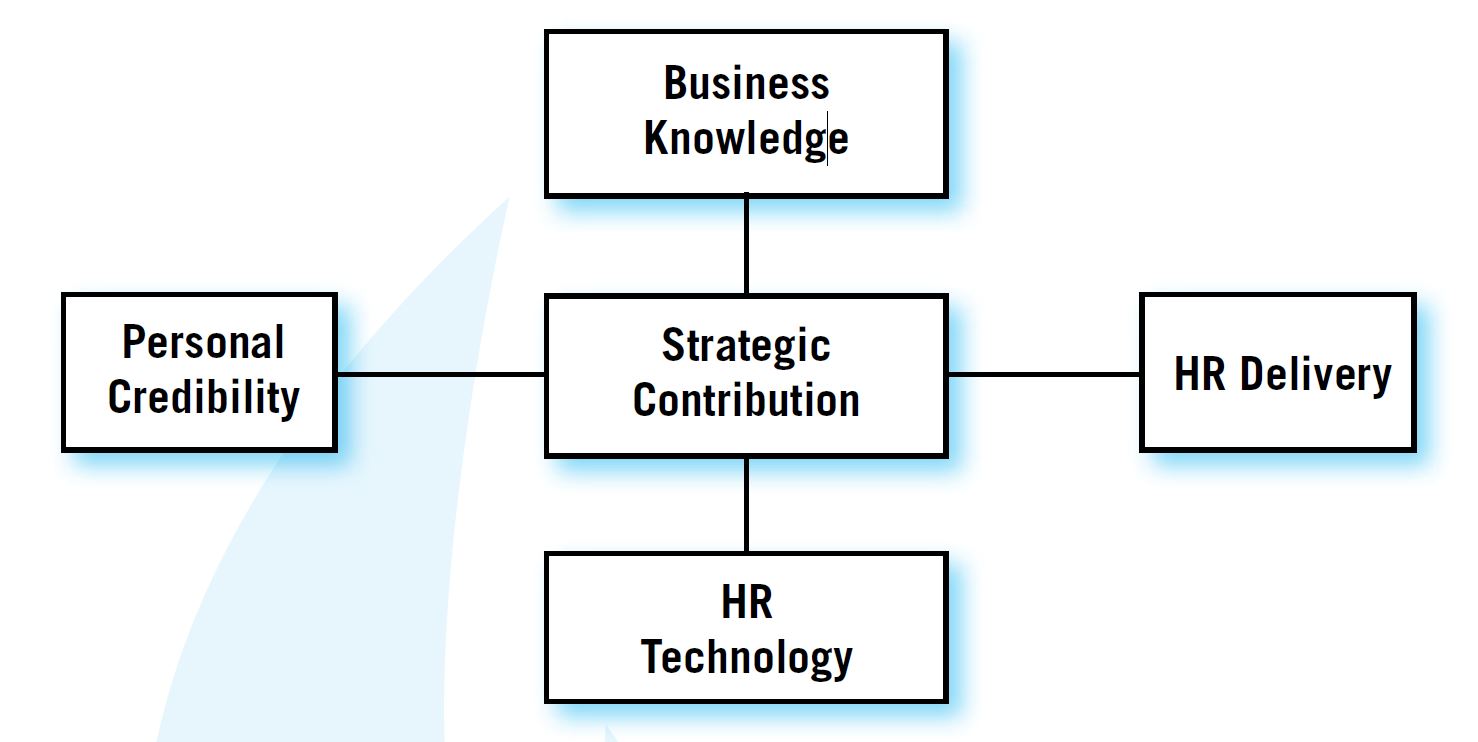
Within each of these areas, both SHRM and CIPD have identified the following high-level competencies:
1. STRATEGIC CONTRIBUTION
Competencies:
- Manage organizational culture
- Manage rapid change
- Be involved in business decision making
- Create a customer-focused organization
- Develop value-added strategies for HR
- Conduct strategic assessments of organizations’ strengths, weaknesses, opportunities and threats (SWOT)
- Benchmark an organization’s HR practices against best practices
- Develop HR strategy to deal with mergers, acquisitions, global alliances and joint ventures
- Develop HR structures and processes that enhance high performance
2. PERSONAL CREDIBILITY
Competencies:
- Build effective work relationships inside and outside the organization
- Generate commitment among key stakeholders to support HR’s agenda
- Deliver measurable results
- Establish a reliable track record that is responsive to organizational needs
- Communicate effectively orally and in writing
- Demonstrate emotional intelligence in dealings with others
- Demonstrate a systematic approach to analyzing problems and generating solutions
- Demonstrate innovation in creating (HR services and products)
- Demonstrate commitment to continuous improvement and learning
- Demonstrate high ethical standards of professional behavior
3. HR DELIVERY
Competencies:
- Manage staffing
- Manage development
- Manage organizational structure and change
- Manage HR measurement
- Manage performance management
- Manage employee and labor relations
- Manage legal compliance
4. BUSINESS KNOWLEDGE
Competencies:
- Understand key organizational and industry issues
- Apply business knowledge to make strategic contributions
- Run HR like a business with a profit and loss mentality
- Understand the organization’s key value chain and how HR contributes to it
5. HR TECHNOLOGY
Competencies:
- Use HR technology to deliver services
- Use Internet technology to deliver services
- Measure impact of technology on business
Each of the five competency areas will be introduced throughout the courses and used as organizing threads to tie together all the content in a systematic whole.
